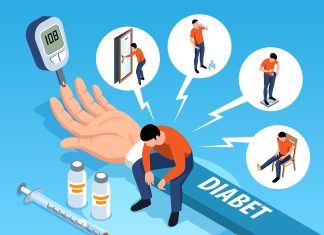Sharing experience, harmonization of legislation and creation of effective joint practices were the directions of international cooperation between pharmaceutical industry regulators determined by the participants of the VII International Congress “Russia – Nicaragua”, held at the end of October in Managua. During the discussions, representatives of government authorities and pharmaceutical manufacturers from around the world shared their views on the prospects for pharmaceutical industry development in the post-covid world, as well as the development of algorithms for international cooperation in the field of regulation aimed at providing patients with high-quality and affordable medicines.
Experts who took part in the congress noted that the COVID-19 pandemic had turned out to be a powerful impetus for the transformation of many regulatory and infrastructural processes in the pharma industry, bringing, among other things, some new practices to the industry that had made it possible to increase the availability of innovative medicines for patients from different countries.
Vadim Merkulov, Deputy Director General for the examination of medicines of the Federal State Budgetary Institution “Scientific Center for Expertise of Medicinal Products” of the Ministry of Health of the Russian Federation, stressed that one of such mechanisms was the experience of fast track drug registration. Because of the pandemic, all regulators had to face the task of accelerating the launch of medicines and the need to work together on the development of standard approaches to this process.
“The Russian Federation has experience in fast track approvals, which made it possible to bring anti–covid drugs to the market in an accelerated mode and with strict pharmacovigilance control,” the expert stressed.
Vladislav Shestakov, Director of the State Institute of Medicines and Good Practices of the Ministry of Industry and Trade of Russia, noted in his speech that during the COVID-19 pandemic, the Russian GMP inspectorate was the first in the Eurasian Economic Union to introduce the practice of conducting inspections in a remote format. In May 2020, an online inspection of the production and auxiliary areas of the Roche site in Basel (Switzerland) was conducted. In total, more than 1,000 online inspections have been conducted since May 2020, and the Russian inspectorate has become one of the global leaders in this area. “The Russian experience of remote inspection was adopted by the rest of the EAEU member states, and in February 2021, related changes were made by the Council of the Eurasian Economic Commission to the Rules for Conducting Pharmaceutical Inspections, according to which it is allowed to conduct inspections with the use of remote interaction tools,” Shestakov said.
The current geopolitical situation has created new challenges for the pharmaceutical industry. However, right now the lessons of the pandemic and the previous experience of cooperation should be used as much as possible to create new formats of international cooperation that meet the requirements of the current situation, the experts present at the congress noted.
The possibilities of international cooperation in the pharmaceutical industry are clearly demonstrated by the activities of the Mechnikov Institute, located in Nicaragua. As the director of the institute Stanislav Uyba noted, this enterprise became the first large-scale project of transfer of Russia’s technologies and developments abroad. Today, the Institute is implementing a project to promote Russian-made immunobiological drugs and pharmaceutical products not only in Nicaragua, but also in the markets of other Latin American countries, successfully interacting with regulators of each of the countries, including in the field of drug registration.
According to the participants of the congress, a necessary step in the development of international cooperation in the new reality should be interaction at the level of regulators from different countries in order to harmonize the legal framework and create effective joint regulatory practices that can later be scaled up.
An example of such cooperation is Russia’s initiative to create a new global Association of pharmaceutical GxP-inspectorates to promote regulatory cooperation and industry partnership. It was first announced during the VII All-Russian GMP Conference with international participation held in September in Irkutsk, and then at the Global Regulators Conclave in India.
“Our long-term experience of cooperation with colleagues from various regulatory agencies and departments has shown us that we have approximately the same tasks and problems, and face similar issues and difficulties in our activities,” Vladislav Shestakov said, stressing the relevance of the association.
Now a working group is being formed, which will establish the association. According to Vladislav Shestakov, representatives of the regulatory authorities of Azerbaijan, Algeria, Bangladesh, Bahrain, Bolivia, Venezuela, Jordan, Iran, Uzbekistan, Ecuador have already expressed their consent. One of the main tasks of the working group is to create draft guidelines that will define the principles of functioning of the association, as well as a database of reference materials for member inspectorates in order to exchange experience and enhance the other party’s knowledge and competencies.
The association of representatives of international pharmaceutical inspectorates will contribute to the development of mutual recognition, which is directly related to the need to harmonize legal provisions, guidelines, and quality systems of pharmaceutical inspectorates, as well as the requirements for inspectors.
It is planned that sharing experience will contribute to the development of the best joint practices. In addition, the association plans to create an educational complex, which will operate both in the traditional format and with the use of virtual reality technologies, for training inspectors from member countries.
“Despite all the economic and geopolitical circumstances, our priority has always been the health and well–being of patients, so we have to provide them with affordable, high-quality and effective medicines,” Vladislav Shestakov summed up.




